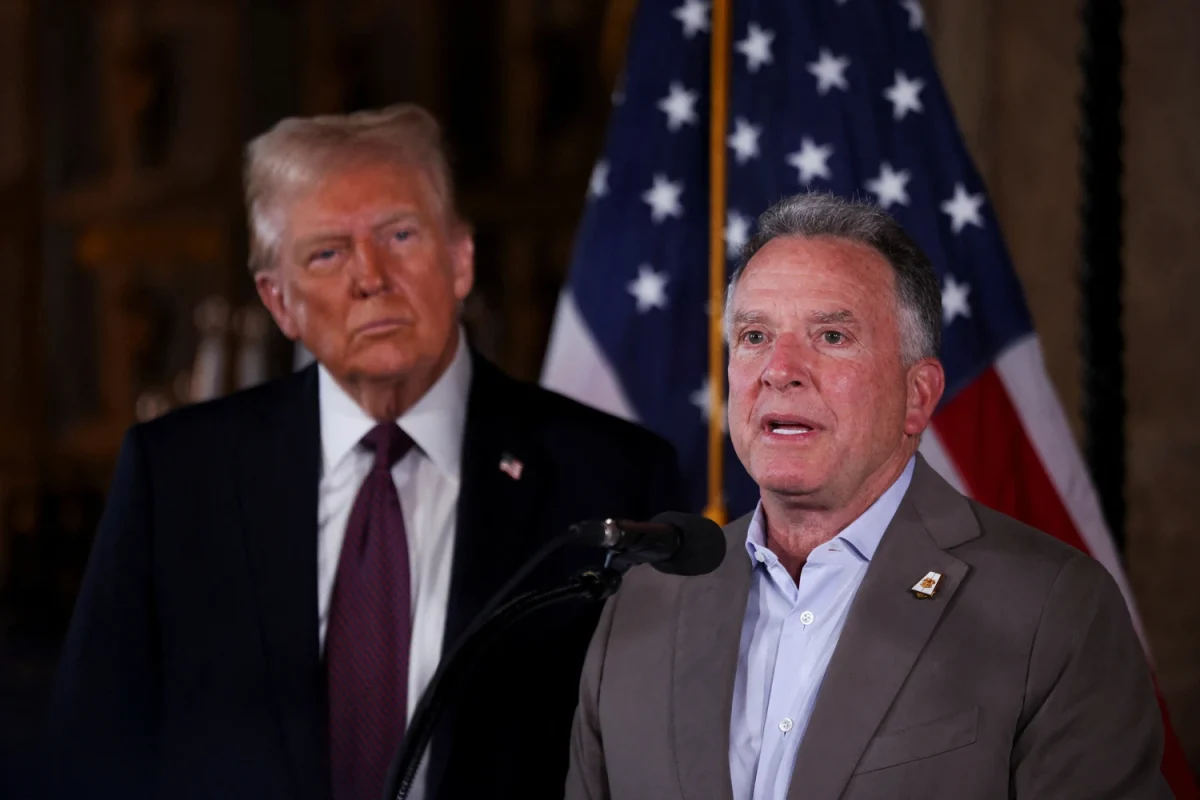After President Donald Trump’s re-election, I expected a resurgence of neoconservatives eager to reclaim positions of power. To my surprise, many establishment Republicans from Trump’s first term, such as John Bolton and Mike Pompeo, have been shut out of his administration. Instead, a different kind of appointee emerged: Real estate developer Steve Witkoff is the unconventional diplomat who has been named the United States’ special envoy to the Middle East.
In his stint thus far as special envoy, Witkoff has produced more results than any statesmen from previous administrations. He played a pivotal role in reopening the negotiations to a ceasefire agreement between Israel and Hamas, demonstrating the strength and leadership necessary to broker peace. This deal not only marked a rare diplomatic success but also rectified much of the instability and conflict exacerbated by the Biden administration’s failures. Witkoff embodies the diplomatic fortitude the U.S. desperately needs.
After Hamas’ terrorist attack in Israel on Oct. 7 that resulted in over a thousand deaths, the Biden administration came to Israel’s defense. Biden warned Israeli leadership against making the same military blunders made by the Bush administration in the early 2000s: “After 9/11, we were enraged in the United States. And while we sought justice and got justice, we also made mistakes.”
Despite grave concerns over the risks of a prolonged war, Biden unwaveringly supported Israel’s military offensive in Gaza, approving billions in military aid, including artillery shells and hellfire missiles. As Israel bombed areas where civilians were told to shelter, the administration offered no pushback. Calls for restraint rang hollow, drowned out by continued arms transfers. By failing to rein in Israeli Prime Minister Benjamin Netanyahu, the Biden administration enabled a war where over 70% of casualties were women and children.
This failure also betrayed the families of Israeli hostages. Most Israelis supported ending the war for a hostage deal, but Netanyahu sabotaged negotiations to appease far-right coalition partners. Hardline parties like Otzma Yehudit opposed any deal linked to a ceasefire, and Netanyahu prioritized political survival, catering to these far-right parties in the Knesset at the expense of hostages and civilians.
This is where Witkoff’s leadership stands in stark contrast to diplomats in previous administrations and why Trump’s decision to appoint him was a terrific one. Without the baggage of a poor foreign policy record, he approached this conflict with a fresh perspective and a results-driven mentality. On Jan. 10, Witkoff notified Netanyahu that the two would be meeting the following afternoon to reignite the ceasefire deal that Netanyahu had previously ignored. Unlike the Biden administration’s war cabinet, Witkoff was able to assert dominance over Israel, forcing them to revive the ceasefire deal without cowing to the demands of far-right parties.
Four days later, Israel and Hamas finally announced a ceasefire deal. The deal involved a multi-phase plan for the release of all Israeli hostages and thousands of Palestinians in detention facilities, and the entry of 500 trucks of humanitarian aid to Gaza each day. Make no mistake, this ceasefire deal would not have come to fruition without Witkoff’s influence. His willingness to pressure Netanyahu into accepting the terms, despite fierce resistance from Knesset hardliners like Itamar Ben-Gvir and Bezalel Smotrich, underscores his diplomatic effectiveness. His success in forcing a ceasefire deal surpasses negotiation efforts from establishment diplomats in both parties.
Witkoff’s urgency to secure a ceasefire deal between Israel and Hamas was something I was immensely surprised by. In a previous opinion column, I made the case for why “Trump’s foreign policy is a recipe for even greater instability in the Middle East.” A significant portion of my main argument revolved around my dissatisfaction with cabinet members from Trump’s first term, like Pompeo. However, after the 2024 election, Trump announced that Nikki Haley and Pompeo would not be invited to his second administration. This signals a stark departure from the neoconservative influence that shaped much of his first administration’s foreign policy. Figures like Haley, Bolton, and Pompeo have championed aggressive interventionist policies that often escalated tensions even further than under the leadership of Democratic administrations. Their exclusion from Trump’s second term suggests a shift away from the failed strategies of the past and opens the door to a new diplomatic approach.
This post-election shift has forced me to reconsider my initial assessment of Trump’s foreign policy direction. While I will remain critical of many aspects of his administration, including his past entanglements with hawkish advisors, Witkoff’s role as Middle East envoy offers a deviation from the first administration’s tainted legacy. If he is able to continue his pragmatic approach to diplomacy, he could redefine America’s role in the Middle East, proving that strategic pressure and direct negotiation can achieve what years of bureaucratic inertia could not. With Trump predicted to task him with handling diplomacy with Iran, his influence on U.S. foreign policy may soon extend beyond the Israel-Palestine conflict.
There are still many moving pieces in both the Trump administration and in the Middle East. On Feb. 4, in a joint press conference with Netanyahu, Trump announced that the “U.S. will take over the Gaza Strip” and force the displacement of Gazans. If this ethnic cleansing and relocation campaign results in more Palestinian deaths, then most of Witkoff’s work to secure a ceasefire deal will be rendered meaningless. However, if this process results in the “dismantling [of all] the dangerous unexploded bombs” and provides Gazans with a viable path to safety, it could set the stage for a more stable future.
As the region braces for the impact of these policies, Witkoff’s capacity to navigate geopolitical tensions will be put to the test. His ability to maneuver the shifting landscape of Middle Eastern diplomacy will determine whether his appointment is a meaningful shift in U.S. foreign policy or simply an isolated success in an otherwise volatile landscape.
The Biden administration’s failures in the Middle East have exacerbated conflict and led to devastating human losses, with millions suffering as a result. While Trump’s foreign policy in his first term was deeply flawed and, at times, increased turmoil, his recent appointment of Witkoff marks a decisive step in the right direction. Unlike the career politicians and bureaucrats who have long struggled to navigate these conflicts, Witkoff has demonstrated an ability to cut through political gridlock and deliver results. His willingness to take decisive action when others hesitated indicates a shift in how American diplomacy can and should operate. The potential success of this ceasefire agreement may serve as a testament to his leadership and a model for future diplomatic efforts — one rooted in strength, pragmatism, and an unwavering commitment to resolving conflict rather than prolonging it.









